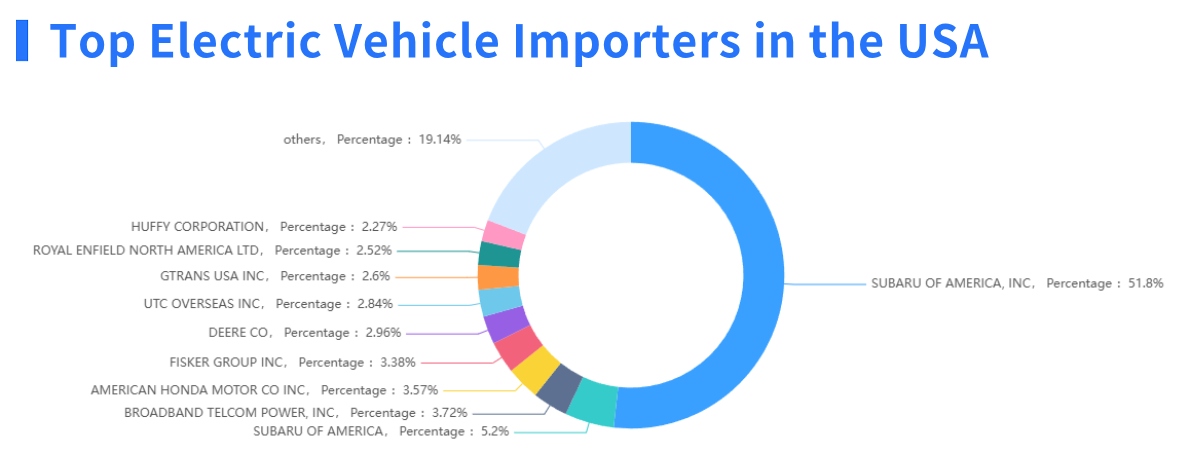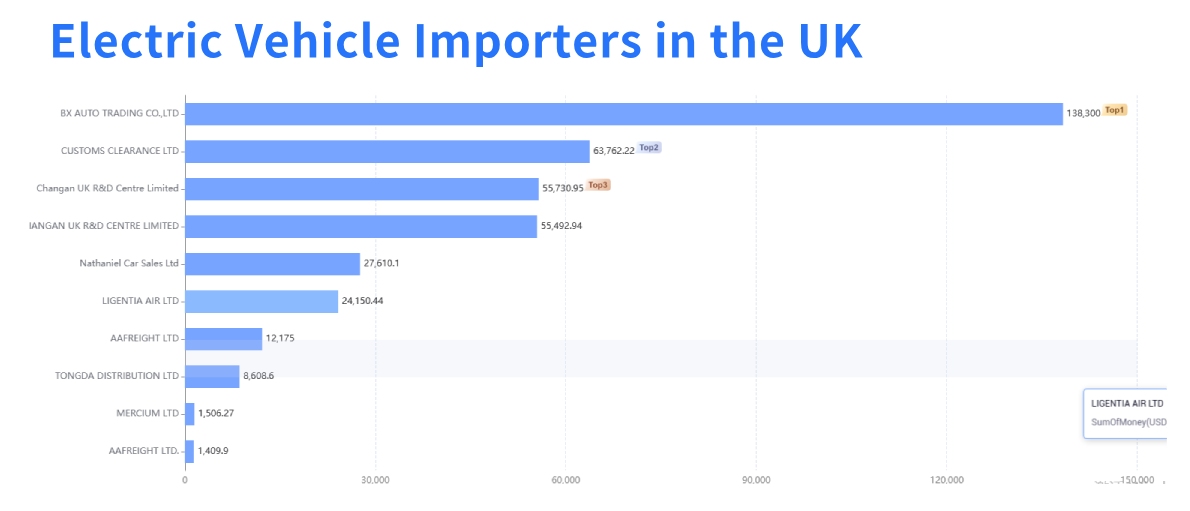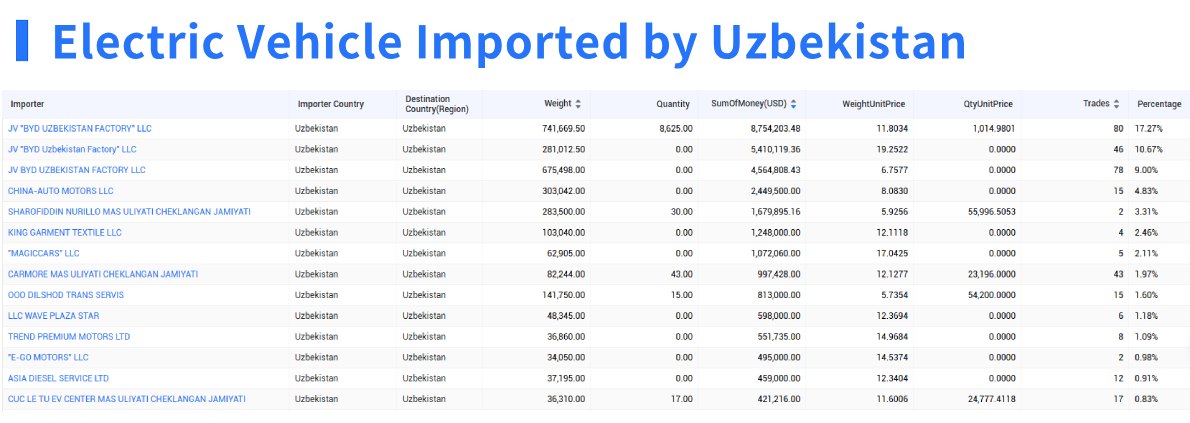 Market Insights
Market Insights
 2025-06-16
2025-06-16
As of 2024, the global landscape of electric vehicle imports has experienced notable shifts, influenced by evolving trade dynamics, regional policies, and consumer preferences. Here's an updated overview of the countries leading in EV imports:

United States
The U.S. continues to be a major importer of electric vehicles (EV) . In 2023, EV imports to the U.S. were valued at approximately $19 billion, encompassing battery electric, plug-in hybrid, and hybrid vehicles. This figure represents over 20% of total U.S. car imports by value, underscoring the nation's growing adoption of electric mobility. The trend is further supported by federal incentives and infrastructure investments aimed at accelerating EV adoption.

Germany
Germany remains a significant player in the EV import market. In 2023, the country imported 129,800 fully electric passenger cars from China, valued at €3.4 billion. Despite a slight decrease in imports in the first four months of 2024, China's share of Germany's EV imports continued to rise, indicating a sustained demand for Chinese-made electric vehicles.
>>>> Report of Electric Vehicle Imports <<<<
United Kingdom
The UK has seen a surge in the adoption of Chinese electric vehicles. In May 2025, Chinese-made EVs accounted for 9.4% of all UK car sales, up from 5.5% the previous year. Chinese brands like BYD and Polestar have capitalized on the UK's lack of tariffs on Chinese EVs, offering competitively priced models that appeal to cost-conscious consumers.

Brazil
Brazil has experienced a significant increase in EV imports. In 2024, the country imported 104,729 vehicles, a 141% growth compared to the previous year. Notably, 90.6% of these imports were electric and hybrid models, highlighting a strong shift towards electrification in Brazil's automotive market. Chinese automaker BYD led the market, selling 76,810 vehicles, nearly three times more than its nearest competitor.
>>>> Get Demo of Electric Vehicle Imports <<<<
Australia
Australia's EV market is increasingly dominated by Chinese manufacturers. In 2024, over 80% of EVs sold in Australia were made in China. This influx has driven down prices, with models like the BYD Seal priced around $50,000, significantly lower than in Europe. The absence of tariffs on Chinese EVs in Australia has facilitated this growth, making EVs more accessible to Australian consumers.
Uzbekistan
Uzbekistan has also seen a rise in EV imports, primarily from China. In the first nine months of 2024, the country imported 16,209 electric vehicles, with nearly 99.5% sourced from China. This trend reflects Uzbekistan's efforts to modernize its vehicle fleet and promote environmentally friendly transportation options.

🌍 Emerging Markets
Emerging markets are increasingly becoming significant players in the global EV import scene. Countries like Turkey and Brazil have implemented tariffs on Chinese EVs, aiming to encourage local production and protect domestic industries. These measures reflect a strategic shift towards fostering local manufacturing capabilities in the face of China's growing export dominance.
>>>> More Information about Electric Vehicle Imports <<<<
In summary, while traditional markets like the U.S. and Germany remain key importers of electric vehicles, emerging markets are rapidly increasing their share. This shift is driven by factors such as competitive pricing, favorable trade policies, and a growing emphasis on environmental sustainability. The global EV import landscape is evolving, with both established and emerging markets playing pivotal roles in shaping the future of electric mobility.

Category
Leave Message for Demo Request or Questions


 T-info
T-info T-discovery
T-discovery

 My
Tendata
My
Tendata Market Analysis
Market Analysis Customer
Development
Customer
Development Competitor
Monitoring
Competitor
Monitoring Customer Relationship
Customer Relationship





































































































































